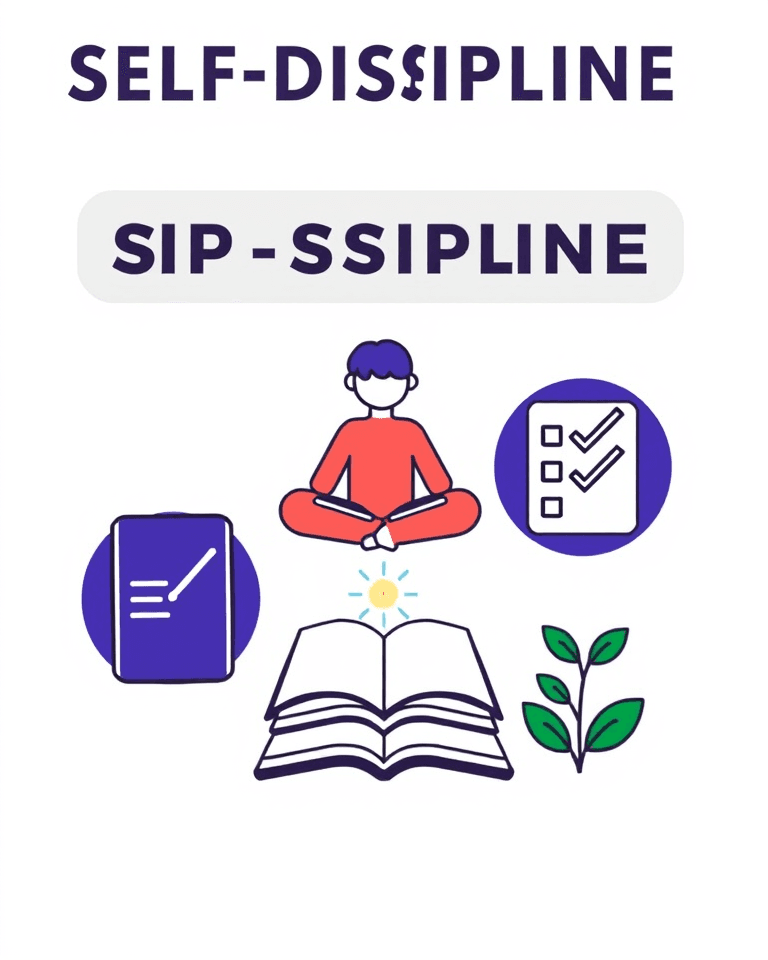Self-discipline is often hailed as the cornerstone of success, yet the path to achieving it can seem shrouded in mystery. While conventional advice emphasizes setting goals and managing time, there are lesser-known habits that can significantly enhance your self-control. This article explores five such habits, offering unique perspectives and practical tips for cultivating a more disciplined life.
1. Embracing Discomfort as a Training Ground
Most people instinctively avoid discomfort, but pushing through it can be a powerful tool for building self-discipline. It’s about intentionally doing things that you don’t necessarily enjoy or find easy, which can strengthen your mental resilience. This isn’t about masochism; it’s about expanding your comfort zone and training your mind to handle challenges.
The Cold Shower Challenge
One way to practice embracing discomfort is by taking cold showers. The initial shock of the cold water is uncomfortable, but that’s precisely the point. By willingly enduring this, you train your mind to resist the urge to seek immediate comfort. This practice extends beyond the shower, making it easier to tackle other difficult tasks throughout your day. It’s a small act with significant implications for your overall self-discipline.
Early Wake-Ups
Another practice to embrace discomfort is waking up earlier than usual. It can be challenging at first, but the sense of accomplishment from conquering this initial hurdle can have a ripple effect. It sets a positive tone for the rest of the day, showing you that you have the strength to push through inertia.
2. The Power of “Mini-Milestones”
Large goals can often feel daunting, leading to procrastination and a lack of motivation. Instead of focusing solely on the end result, break down your objectives into smaller, more manageable steps. These “mini-milestones” can provide a sense of accomplishment, motivating you to keep moving forward.
The Small Actions Approach
The key here is to make the initial steps so small that they are almost impossible to refuse. For example, instead of committing to a large work project, start with just five minutes of work. Or, instead of an hour at the gym, do a 10-minute run. These small actions build momentum and make it easier to tackle larger, more challenging tasks later on.
Celebrate Small Victories
It’s also important to acknowledge and celebrate each mini-milestone you achieve. This reinforces positive behaviors, making you more likely to continue making progress. These celebrations don’t have to be extravagant; a small treat or a moment of self-praise can be just as effective.
3. Cultivating Mindfulness of Urges
Often, a lack of self-discipline is rooted in our inability to resist immediate gratification. Recognizing and understanding your urges is a critical step in mastering self-control. This isn’t about suppressing those feelings; it’s about observing them without acting on them.
The 10-Minute Rule
A practical way to practice mindfulness of urges is by setting a timer for 10 minutes when you feel the urge to procrastinate or give in to a temptation. During those 10 minutes, simply observe the urge without acting on it. This practice helps you see that urges are fleeting and that you don’t have to be controlled by them.
Meditation and Mindfulness
Regular meditation can also enhance your ability to observe and manage your urges. It trains your mind to stay present and to resist the urge to react impulsively. This mindfulness can extend beyond meditation, helping you to handle distractions and temptations throughout your day.
4. The Importance of “No-Comm” Zones
In today’s hyper-connected world, constant interruptions can be detrimental to self-discipline. Establishing “no-comm zones” can help you minimize distractions and improve focus. These are dedicated spaces where you disconnect from technology and external stimuli.
Digital Detox
Your no-comm zone could be a designated area in your home where you leave your phone and computer. This could be a quiet corner, a specific room, or even just a comfortable chair. This practice minimizes the temptation to check social media or emails when you should be concentrating on other tasks.
Time Blocking
It’s also beneficial to integrate no-comm time into your schedule. Allocate certain blocks of time each day for focused work or other activities, during which you avoid all distractions. This might involve time-blocking, where you allocate specific periods for specific tasks, creating a structured environment that minimizes decision fatigue.
5. Developing a “Why” and Visualizing Success
Self-discipline becomes much easier when it’s anchored to a strong sense of purpose. Having a clear “why” helps you to maintain focus and overcome challenges. This involves not just setting goals, but understanding the deeper reasons behind them.
The Power of Visualization
Visualizing your goals can also enhance your motivation and discipline. Take time each day to imagine what success looks like and how it feels. This mental practice can reinforce your commitment and keep you aligned with your aspirations.
Journaling and Reflection
Regular journaling can also help you clarify your “why” and track your progress. Reflect on your experiences, acknowledge your accomplishments, and identify areas where you can improve. This ongoing reflection deepens your understanding of your goals and your motivation to achieve them.
Conclusion
Building self-discipline is a journey that requires more than just willpower. It’s about developing specific habits that reshape your mindset and behavior. By embracing discomfort, focusing on mini-milestones, cultivating mindfulness of urges, creating “no-comm zones”, and developing a strong “why” you can cultivate greater self-control and achieve your goals. Remember that consistency and self-compassion are key. As you integrate these practices into your life, you’ll discover that self-discipline is not a rigid set of rules, but a dynamic process that empowers you to live with greater focus and purpose.










